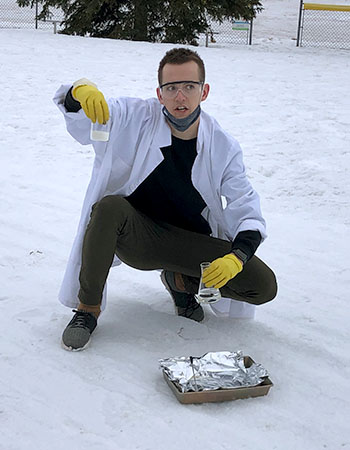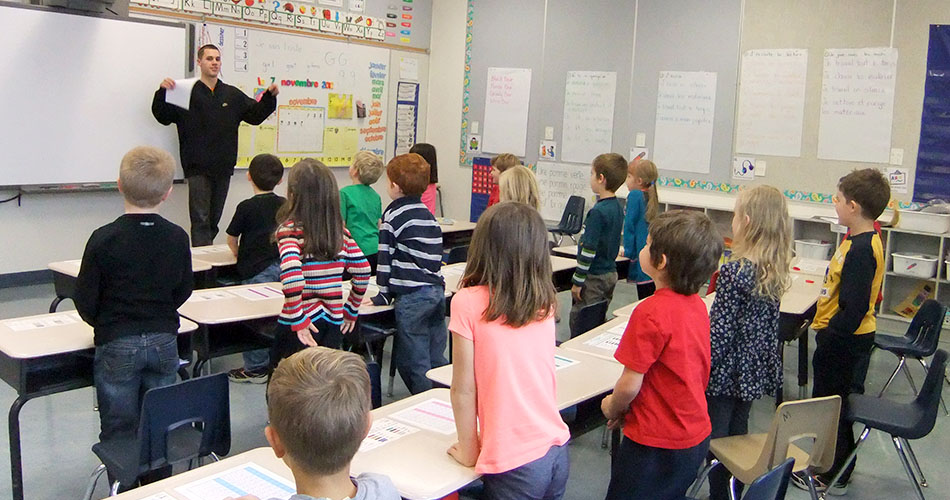What is BEd/BSc Combined?
This degree is an opportunity for students interested in becoming junior high or high school science teachers. Earn two degrees in five years as part of this program!
BSc/BED at Augustana
This combined degree allows you to complete the first three years of your degree at Augustana, followed by two years on North Campus in Edmonton. In this program, you'll typically do your work experience placements in a rural or small-town school.
Although you'll be majoring in general sciences, you'll be able to select a focus area in biology, chemistry, general sciences or math. No matter your focus, you'll master skills across all the science disciplines to help shape you as a well-rounded teacher. You'll also be able to choose a minor either within or outside of the sciences to improve your marketability as a teacher!
Program Information
General Science major with specialization in: Biology, Chemistry, General Science or Mathematics.
Teaching minors: Art, Biology, Chemistry, Drama, English Language Arts, Mathematical Sciences, Philosophy & Religious Studies, Physical Education, Physical Sciences, Social Studies
Academic Innovations
All programs at Augustana include a wide-ranging liberal arts and sciences core, taught within our unique “3-11” calendar.
Careers
An undergraduate degree majoring in General Science from Augustana will equip you to educate and empower future leaders through a fulfilling career as a(n):
- (Junior) High School Science Teacher
- Education administrator
- English as a second language teacher
- Curriculum developer
- and many more!
Featured AlumnUS

Teacher (and podcaster on the side)
“Augustana taught me to approach experts and learn from them through conversation,” Cole says. “That process opened up a new method of learning and a curiosity for the world.”
Course Highlights
Introduction to the fundamental concepts and issues in educational psychology. The focus is on the child from preschool to adolescence through examination of learning and instruction, individual differences, motivation, assessment, and classroom management.
Mendelian inheritance and its cytological features including the molecular and cellular basis for the transmission of hereditary characteristics. Topics that are emphasized include microbial genetics, cytoplasmic inheritance, linkage and genetic mapping, DNA as genetic material, gene action, and the genetic code.
Introduction to cryptography in theory and practice, including its applications and mathematical foundations. Topics include classical cryptosystems, private-key cryptosystems (including DES and AES), hashing and public-key cryptosystems (including RSA), digital signatures, selected topics in cryptography.
Philosophical approach to the presuppositions, attitudes, language, practices, and goals of the physical and social sciences. Topics may include theory evaluation, explanation, and the nature of scientific law.
Study of the mechanism of different classes of enzymes along with experimental techniques used in enzymology.
